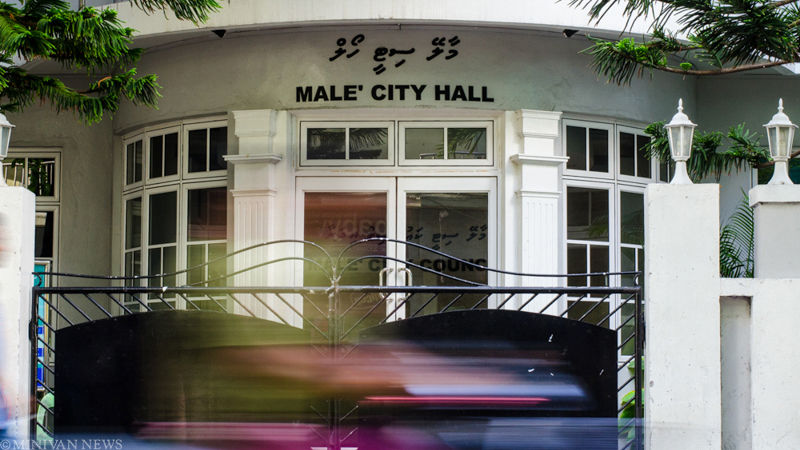A council in name only
The government’s dismal treatment of the Malé City councilors and their staff feel like an act of reprisal against the residents of Malé, simply for having voted for the opposition, writes Mohamed Saif Fathih.

05 Aug 2015, 09:00
On a Monday morning, I walked into the Malé City Council’s new offices at the run-down Huravee building. Some eight staff were squeezed in behind a counter, handing out forms to register births and deaths in the capital. Paint was flaking on the walls, the furniture was mismatched and shabby, and sunlight barely filtered in.
I asked the women behind the counter how they felt about President Abdulla Yameen’s July 23 decision to limit the city council’s powers. Some just stared at me, while others turned away saying they had work to do.
Despite repeated questions, they were reluctant to speak to me.
Just as I was about to leave, I met an elderly woman at the doorway, who pointed to the office space across the way. “That space is bigger, it used to belong to us. But the Housing Ministry has taken it over now,” she said.
Become a member
Get full access to our archive and personalise your experience.
Already a member?
Discussion
No comments yet. Be the first to share your thoughts!
No comments yet. Be the first to join the conversation!
Join the Conversation
Sign in to share your thoughts under an alias and take part in the discussion. Independent journalism thrives on open, respectful debate — your voice matters.




